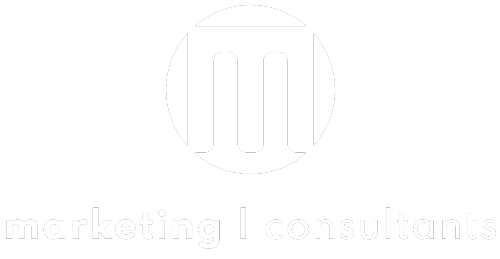Understanding Media Buying: How Strategic Ad Placement Improves ROI
To see success within the competitive advertising landscape of today, brands must go beyond creating compelling slogans and visuals. They need to strategically position their messages to ensure they reach the right audience at the right time. Understanding media buying plays a pivotal role in achieving this, combining art and science to secure impactful ad placements while optimizing budgets.
From traditional platforms like television and radio to digital spaces such as social media and streaming services, media buying ensures that brands connect with their target audiences effectively and cost-efficiently. For small and mid-sized businesses (SMBs), understanding media buying is critical to maximizing return on investment (ROI).
What is Media Buying?
Media buying is the process of purchasing advertising space across platforms to maximize ad exposure and effectiveness. It involves analyzing audience behaviors, negotiating ad placements, and ensuring campaigns align with a brand’s goals. Whether buying traditional ads on radio or TV or leveraging programmatic advertising on digital platforms, understanding media buying means reaching the target audience at the right moment.
For example, a skincare brand placing an ad for a new product on a beauty website ensures the ad resonates with its intended audience, increasing engagement and sales. Effective media buying relies on strategic ad placement and audience targeting to optimize outcomes.
The Value of Media Buying
Understanding media buying goes beyond simply placing ads. It’s about strategically aligning the ad’s message with the medium to ensure maximum relevance and impact. Ads placed in the wrong context can miss their mark, wasting valuable advertising dollars. A study by eMarketer found that 77% of marketers believe relevance is crucial to ad effectiveness, highlighting the importance of proper targeting.
By utilizing professional media buying services, businesses can ensure their campaigns not only reach their audiences but also resonate with them, driving greater brand recognition and higher ROI. Partnering with experienced professionals like M-Marketing Consultants can simplify this complex process, helping businesses achieve impactful campaigns without overspending.
How Media Buying Differs from Media Planning
While media planning and media buying are closely linked, they serve distinct functions.
- Media Planning involves research and strategy development to determine the most effective channels, timing, and messaging to reach a campaign’s goals. It’s the foundation upon which successful media buying is built.
- Media Buying executes the plan, negotiating with platforms, purchasing ad placements, and optimizing campaigns for maximum impact.
For instance, a professional media planner might recommend targeting fitness enthusiasts on Instagram, while an expert media buyer secures the placements and ensures ads are served during peak engagement hours.
Together, these roles ensure that advertising campaigns are both strategic and impactful.
Complexities in Media Buying
Media buying is far from a simple transaction. It requires a nuanced understanding of platforms, audiences, and budgeting. Professionals navigate challenges such as:
- Ad Placement Strategies: Securing prime ad slots that maximize visibility while staying within budget.
- Audience Targeting: Identifying and reaching specific demographics to ensure ads resonate.
- Cost Optimization: Negotiating rates, reducing wasted spend, and reallocating funds to high-performing channels.
For example, programmatic advertising automates ad placements using algorithms, allowing brands to target users based on behaviors, demographics, and location. According to Statista, programmatic ad spending is projected to reach $700 billion globally by 2026, reflecting its growing importance.
Benefits of Partnering with Media Buying Experts
Navigating the complexities inherent to understanding media buying often requires professional expertise. Experienced buyers bring value by:
- Reducing Costs: Professionals negotiate better deals and secure value-added benefits like bonus impressions or extended ad slots.
- Improving ROI: By continuously monitoring and optimizing campaigns, experts ensure every dollar works harder.
- Saving Time: Experienced media buyers handle negotiations, contracts, and performance tracking, freeing businesses to focus on other priorities.
At M-Marketing Consultants, our team leverages years of expertise to help clients achieve maximum impact through strategic media buying. M-Marketing excels in securing ad placements for both digital and traditional mediums, including radio media buying and tv media buying.
Emerging Trends in Media Buying
The advertising landscape is constantly evolving. Some key trends include:
- Programmatic Advertising: Real-time bidding and demand-side platforms (DSPs) are revolutionizing how brands purchase ad space.
- Privacy Changes: Regulations like GDPR and cookie restrictions are shifting how advertisers collect and use data.
- Social Media Dominance: Platforms like TikTok and Instagram are becoming integral to media strategies.
- Cross-Channel Integration: Combining digital and traditional channels ensures cohesive messaging and maximized reach.
Staying ahead of these trends helps businesses create more effective campaigns that drive meaningful results. M-Marketing consultants are also staying ahead of the curve when it comes to digital marketing and strategies. If you’re interested in further understanding media buying as it relates to digital marketing, we’d love to discuss a digital marketing strategy with you.
Conclusion: Why Media Buying Matters
Media buying is essential for businesses looking to maximize their advertising impact. By aligning ad placements with audience behaviors, it ensures that brands not only reach their target markets but also resonate with them. While the process can be complex, we can simplify the journey, delivering measurable results that make every advertising dollar count. Ready to elevate your advertising campaigns? Contact us today to learn how we can help you navigate the complexities of media buying and achieve greater ROI.
Frequently Asked Questions About Media Buying
- What is media buying in advertising?
Media buying involves purchasing ad space on platforms like TV, radio, websites, or social media to reach a specific audience effectively and efficiently. - How does media buying differ from media planning?
Media planning focuses on research and strategy, while media buying executes the plan by securing ad placements and optimizing campaigns. - Why is media buying important?
Strategic media buying ensures ads are seen by the right people at the right time, maximizing impact and ROI while minimizing wasted spend. - What are common challenges in media buying?
Challenges include ad fraud, unclear contracts, and mid-campaign optimization. Professionals address these issues with expertise and data-driven strategies. - What is programmatic advertising?
Programmatic advertising uses automated technology and algorithms to purchase ad space in real time, allowing for precise targeting and cost optimization. - How do media buyers improve ROI?
Media buyers optimize campaigns by negotiating better rates, securing added value (like bonus impressions), and reallocating budgets to high-performing ads. - What metrics are essential for measuring media buying success?
Key metrics include impressions, click-through rates (CTR), conversions, and cost per acquisition (CPA). These provide insights into campaign performance. - Why should small businesses consider hiring media buying experts?
Media buying experts help SMBs maximize limited budgets by optimizing ad placements, negotiating costs, and delivering measurable results.


